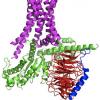TLDR: Vitamin A appears to have improved my sleep.
//Form:// Animal source vitamin a from cod liver oil. (webber naturals)
//Current dosage:// 2500 UI. (2 pills).
//How to take:// With dinner, preferably at least 4 hours before bed.
//Evidence it might work:// In mice, it has been shown to improve delta power during NREM stage 3 slow-wave sleep compared to vitamin-a deficient mice. It's more interesting than that, see attached PDF for details.
//Side effects?// There is fatigue and a lowering of appetite and some apathy. However, it seems this is more true if I take a higher dose and less so if I take a lower one.
//Confounding factors// I already have an underlying dysthymia, am taking a very low dose of sleep drugs, and am weaning off these drugs, i have iron deficiency.
-------------------------------------
Good day.
So I've had success with insomnia yet again, but this time with a very unlikely vitamin!
Never knew this could help.
So as some of you know, I have had extreme chronic insomnia for a long time.
You also may know that I've tried to treat it with drugs, and I've had some very good success there.
Trazodone helps with sleep initiation, pregabalin with sleep depth and maintaining sleep , gaining hours... eplivanserin had good effect as well, and from time to time etizolam worked if I was taking it for a short period.
However, I didn't wish to continue taking those drugs as they come with their own complications, and I hoped I could regain sleep by some other way.
Mostly, I've been trying to find the cause of not only my insomnia, but some other issues I'm having (i.e. tachycardia). it may possibly be anxiety but I'm not sure.
Anyway, the doctor did find out I'm lacking iron about a year and a half ago. Back then I started dosing up on a form of Iron Polysaccharide called Feramax. If I get it correctly, it's practically heme iron and it gives much less side effects than other forms of iron, at least in the gut. So I was taking feramax, between 150-300 mg of iron a day. This gave me side effects of being really irritable, I felt like it did something to me mentally that I didn't like... and it didn't really seem to help! So I've taken this on and off. I try to persist as long as I can, i.e. a week or two, then i stop for a few weeks, then I start again, and there have been periods where I stopped for a few months.
For the most part, I'm not sure if I noticed any benefits from iron to be honest.
I thought perhaps if I combine it with vitamin A, since vitamin A helps to transport iron in the body and improves response to iron supplements, that maybe this would help.
I did notice an improvement in sleep, however , there were a few problems:
-the iron made me feel pretty crappy.
-The vitamin a made me tired as hell, because I was taking 10,000 UI a day!!!! (it was the only pill I had)
I actually noticed that improvement in sleep about a year ago, and I thought it was from the combination of iron and vitamin a. Of course both were giving me side effects. The vitamin A dosage was way too high!
I bought another vitamin A supplement. I was trying to find a supplement that didn't have too much fat in it, and not too much other nutrients. For example, there is cod liver oil out there I could use but I wanted to make sure it didn't have too much fish oil, omega 3's, wasn't too high in vitamin D etc. Practically, a bare minimum of anything else, since I don't want to confound my experiment with other things. Eventually I found a vitamin A that has approximately 100% of the RDA in one pill.
At first, i was taking this on the same day as iron, but I had to stop because the iron either induced some sort of gastritis, or it bothered existing ulcers in my stomach. It was a surprise to me because I'd taken this iron before without that same issue, but then about a month ago I developed gastritis, and since then it seems that if I begin to take either iron or garlic that my stomach becomes progressively worse. So the iron is out the window, at least for now.
I continued to take vitamin a, and I've noticed consistent improvements apart from the iron. Usually I've taken 2 or 3 tablets.
Let's put it this way.
For a while I stopped both iron and vitamin a. I also progressively lowered all my sleep meds to almost nothing, but I tapered at a reasonable speed. My sleep was almost absolutely destroyed. I began taking vitamin a again.
I've tried taking the vitamin A in the morning, and directly before bed. But it seems to work much better if taken several hours before bed, because that way, when the tiredness kicks in from the vitamin a you can sleep without it affecting your day negatively so much. Also it doesn't seem to kick in as well if you take it directly before bed. Apparently it might even make sleep a bit weird if taken immediately before sleep (like a groggy sleep), though it's hard for me to say.
One reason I really think this is working is because there have been several occasions where I've weaned myself to a low level of sleep drugs and have tried to stay off them for a week or two, , wasn't taking vitamin a on a consistent basis, and I've had horrible results with sleep almost every time. I've also gone almost drug-free and was taking 150mg-300mg iron consistently and saw no consistent improvement in sleep. (if you've seen my "weird tachycardia" thread you will see me complaining about that).
Right now I've had about 4 or 5 days of consistently good sleep from taking vitamin A with dinner.
My sleep drugs are super low right now. 12.5 mg trazodone and 50 mg pregabalin. I've never been able to survive on such a dose. (previously 50 and 150 were more likely to do something).
I'm going to continue to wean off the drugs and use vitamin A and I will return to this thread if it continues to work. I've never in the course of this entire year been able to get away with doing something like this.
BTW. I think there is some link between vitamin A and iron stores which I'm not completely clear on. For example, the fact that vitamin A is working for me could still have something to do with my iron deficiency.
And, it's not working for tachycardia, only sleep.



























































